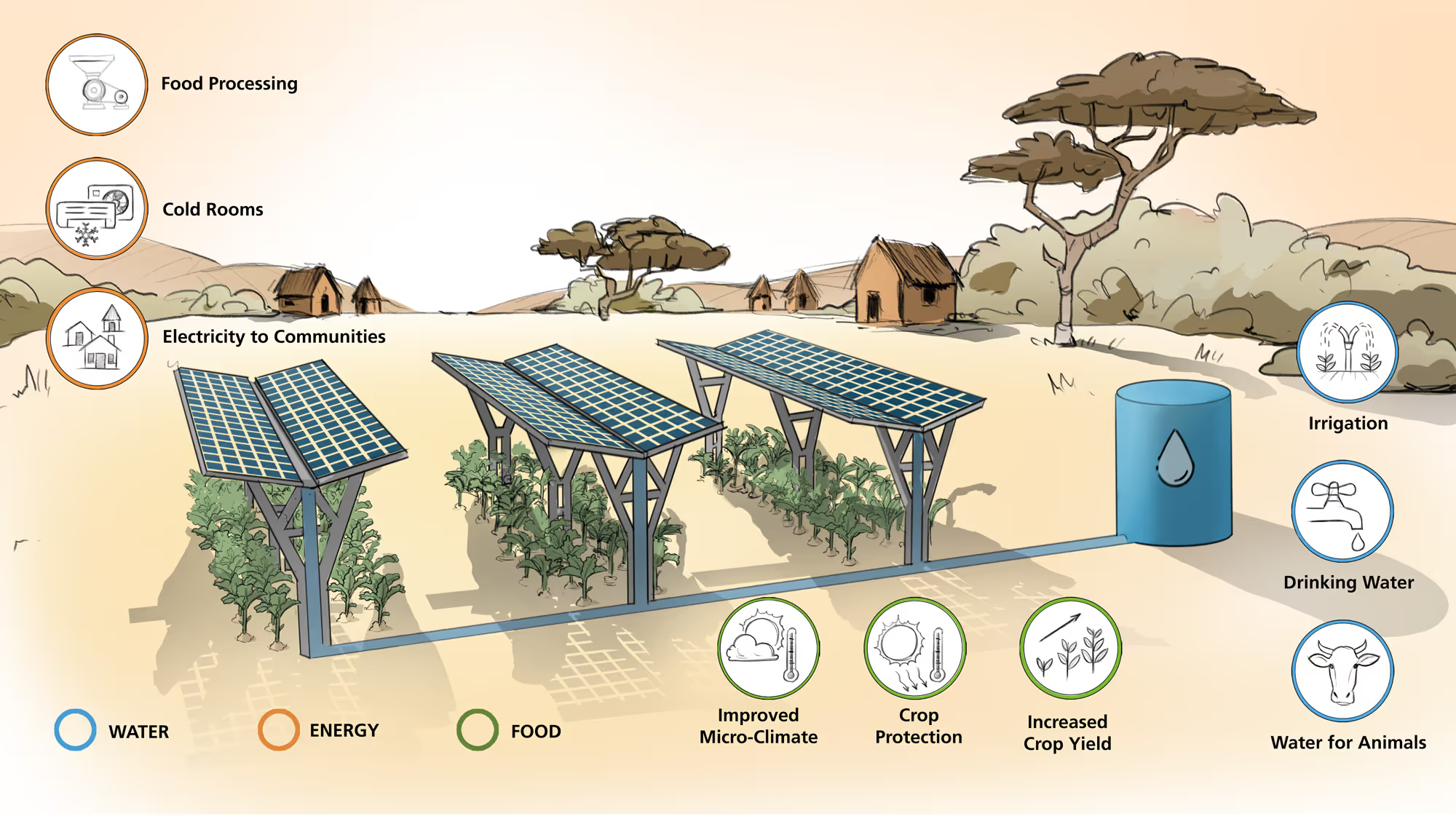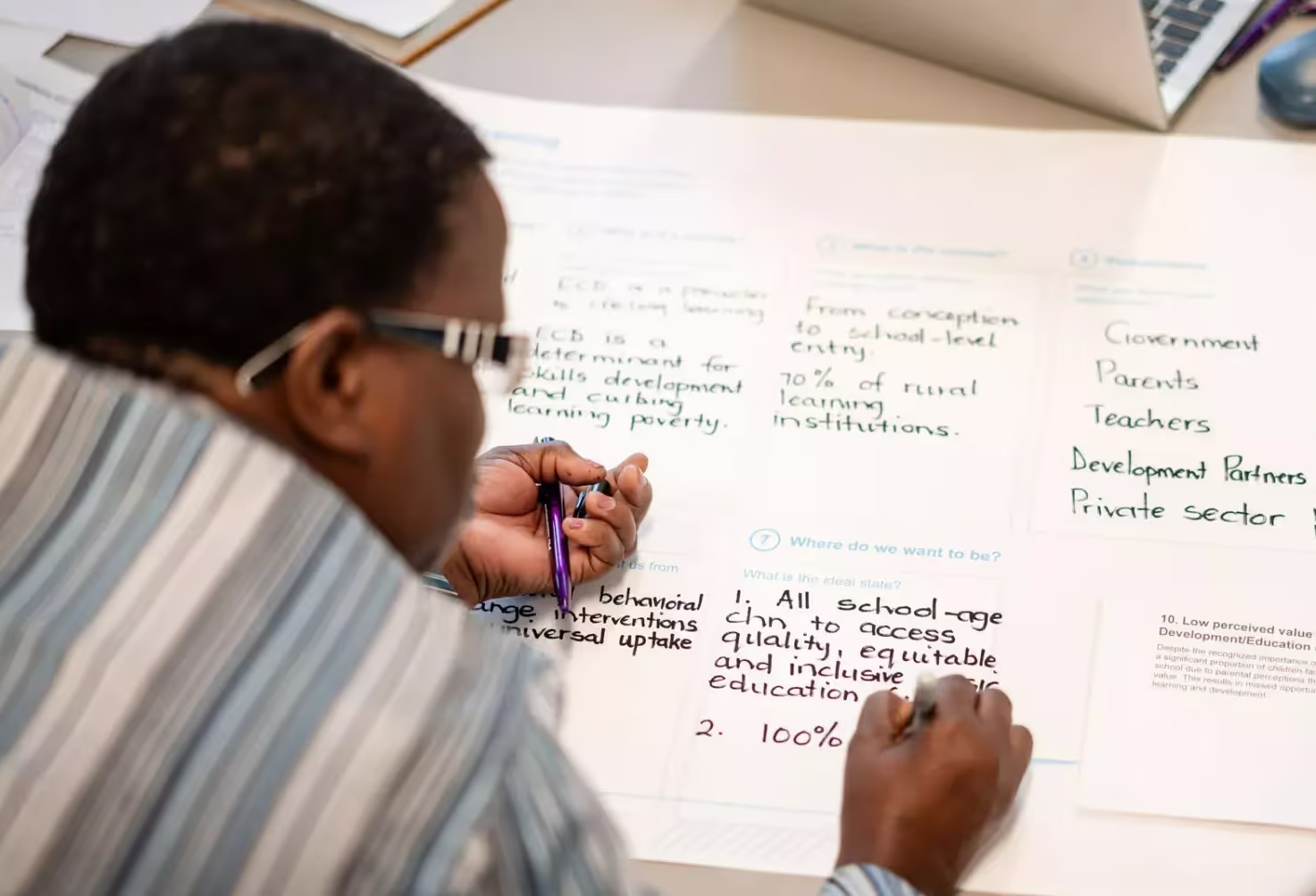Agrophotovoltaics (APV) in Mali and The Gambia Project

In Mali and The Gambia, an interdisciplinary consortium is implementing an agrophotovoltaics (APV) project. “APV-MaGa”, is based on an integrated triple land use system that allows for the production of food, electricity and water through rainwater harvesting. In dry, hot and sunny climatic regions like Mali and the Gambia, crops are expected to respond with higher yields as the partial shade of the PV panels protects them from excessive sun, heat and severe weather events hence, increasing climate change resilience. An intelligent systems based on smart sensors, microcontrollers respectively Internet of Things will be designed to monitor and collect real time data for water demand and water allocation for irrigation systems. Furthermore, web-access will be devloped in order to provide information on agricultural products and organized payment for various services offer to the community. The project is funded by BMBF Germany.


.avif)

